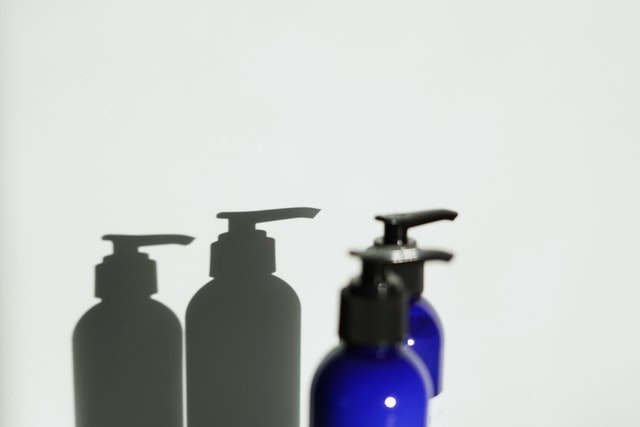Just as you need food to grow, your skin needs vitamins to glow. Generally, most health therapies begin with healthy eating.
However, “Eat healthy” sounds vague.
While healthy diets promise general wellbeing, for healthy skin, vitamins are the real deal. Interestingly, these vitamins are predominant in most of your favorite fruits and vegetables — more details below.
Indeed, adequate vitamins in your meals help boost skin health. But remember, other parts of your body need a share of the vitamins consumed. This, too often, leave our skin with, but an insignificant portion of the required vitamins.
Thankfully, your skincare products can sufficiently fill up the imbalance — supplying your skin surplus skin-friendly nutrients.
Among the bundle, here are some excellent vitamins to look out for in your skincare products — and, as well, your diets.
Vitamin A
Besides its many benefits on vision, bones, and other body tissues, Vitamin A feeds your skin.
Predominant in oily fish, liver, and eggs, vitamin A helps repair your normal skin.
If offal or variety meats is not your thing, sweet potatoes and carrots in your diets will cover-up. These foods are all rich in beta-carotene, a compound the body processes into vitamin A.
Kate Kerr, clinical facialist, nicks Vitamin A, a cell-communicator. That is, when consumed, this vitamin binds with skin cells and make them act as though they were younger.
The presence of retinol in vitamin A makes a massive difference in your skin. Retinol is thought essential for all-round skin health — including improvement of hyperpigmentation, large pore, acne, wrinkles, and lines.
Inadequate vitamin A may cause dry, bumpy, or/and itchy skin.
Vitamin E
Vitamin E is arguably one of the most common ingredients in your everyday skincare products.
This vitamin has gained recognition in dermatology for over five decades. It is widely appreciated in the beauty world for its benefits to sensitive and ultra-dry skins.
Also, the vitamin helps for increased hydration and, in turn, incredible softness. It also provides intense moisturizing effects that leave the skin smooth and plump.
Besides, Vitamin E comes with antioxidants known to shield the skin from environmental stressors, like pollutants.

Vitamins E and C, when combined, can offer an entourage effect. For instance, this heaven-made match may fight against free radicals, preventing tissue damage, which causes premature aging.
According to a Harvard Health Publication, Vitamin E may help sustain your Vitamin A levels.
If you need to expel acne, one studies suggest Vitamin E can help.
Vitamin C
Among other general wellbeing functions, Vitamin C feeds your skin.
The vitamin is known to create collagen tissue, which promotes skin’s firmness. Besides, Vitamin C’s antioxidant property helps shield the skin from damaging effects of free radicals. It is also thought to reduce the chances of cancer
When applied to the skin, a review says, vitamin C may manage photoaging signs like hyperpigmentation.
Adequate portions of citrus foods, strawberries, spinach, broccoli, orange juice, and expert-recommended supplements go a long way.
While Vitamin-C infused products manage skin redness, dryness, age spots, and wrinkles, it’s deficiency may expose the skin to easy bruising, bleeding gums, and reduced sore-healing process.
Vitamin D
Do you suffer sensitive skin or acne?
Known as the “sunshine vitamin", Vitamin D is a worthy addition to your skincare line-up.
The vitamin is so-called as it is obtained from the sun and converted by your skin. While you may not rely on the sun on adequate ‘dose’ of vitamin D, consider dosing on supplements and Vitamin D rich skincare products.
Milk and breakfast cereals are, often, rich sources of vitamin D. For more natural sources, prefer foods like fish, mushrooms, and eggs.
One study says vitamin D deficiency is widely associated with acne. The vitamin can be ruthless with infections.
This vitamin is a high-potent antioxidant that shields your skin from the disproportional effects of free radicals.

Vitamin K
Vitamin K aids the blood clotting process. This effect causes a fast heal from bruises, wounds, and surgery effects. Primarily, vitamin K is thought to handle skin concerns including, spider veins, stretch marks, dark spots, and scars.
You’d find vitamin K in some topical skincare products designed for a range of skin health issues. Experts, in many instances, may apply or recommend Vitamin K for bruising and swelling after surgery.
That said, Vitamin K – unlike Vitamins C and E – may need more research to substantiate these claims.
Typically, 90 to 120 ug daily consumption is a standard dosage recommendation.
If you think you fall below this benchmark, no worries – spinach, cabbage, green beans, lettuce, and kale are excellent vitamin K level boosters.
Are vitamins as essential as it sounds?
Of course!
Talking healthy skin, vitamins are key players. Vitamin deficiency may cause several skin concerns. So, the best thing that can possibly happen to your skin is a beautiful combination of vitamin-rich skincare products, supplements, and a healthy, nutrient-packed diet.
That said, when in excess, vitamin supplements may cause some adverse health concerns.
So, you may prefer vitamin supplements or skincare products based on your skincare needs. In fact, some skincare solutions can even leave your skin worse than ever.
Consult your dermatologist or doctor
While vitamin supplements and skincare products are easily accessible, you may want to talk to your doctor or dermatologist before you begin any regimen. This would expose you to likely side effect(s) and pro-guide on dosage/usage.
So, before you go home with your choicest skincare product, check for the vitamins above on the ingredient list.
Happy, healthy skin!

